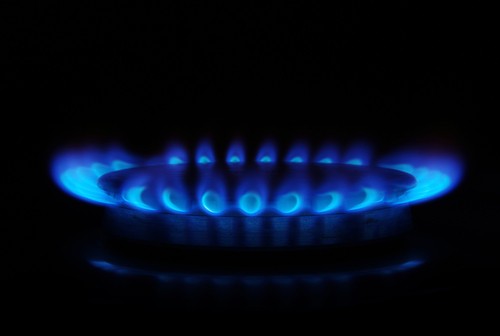
Trust NOCO for your propane delivery and service needs!
Propane’s full name is liquified petroleum gas (LPG). The chemical formula for propane is C₃H₈.
In 1864, Edmund Ronalds—a British academic and industrial chemist—stumbled across propane while conducting research on chemicals present in light crude oil from Pennsylvania.
In 1910, Walter O. Snelling made a momentous discovery in the world of propane- he found that certain evaporating gases could be converted into liquids. At the time, Snelling was employed by the United States Bureau of Mines in Pittsburgh where he was exploring different ways to store and make gasoline evaporation more efficient when he had his breakthrough.
Snelling found that propane was the most plentiful of all gases studied and invented a method for bottling the liquified gas, which was the beginning of the propane industry. He went on to sell the patent for propane to Frank Philips, founder of Philips Petroleum, for $50,000 three years later. That’s about $1.4 million in today’s money.
To make propane detectable by smell, an odorant is added to the gas. The most common additive used is ethyl mercaptan, which smells like rotten eggs. By adding this sharp-smelling addition, people can more easily identify propane leaks. If you notice that rotten-egg smell in your home, follow these propane safety best practices:
Evacuate immediately and go to a safe location. Do not stay in the house or try to find the source of the leak.
- If you can safely access it, shut off the propane supply valve on your propane tank
- Call 911 and NOCO from a safe location.
- Do not return until given clearance by first responders or our service technicians.
Where do we get our propane supply from?
The propane used in the United States and Canada is created as a by-product of natural gas processing, which has increased with shale gas production. When natural gas goes through processing, it produces liquids like propane, butane, methane, and ethane.
In fact, around 70% of our domestic propane supply is produced this way. The other 30% come from refining crude oil.
Propane is then transported to bulk distribution facilities through pipelines, tankers, ships, trains, and trucks. From there, the propane is distributed to local vendors, such as NOCO, who deliver it to homes and businesses.
If you’re tired of worrying about your home’s propane supply, never fear! Our Automatic Delivery feature takes the stress out of keeping track. You’ll always have a warm, safe, and comfortable home with our reliable propane delivery service across Western New York. We also provide tank installation and leasing at an affordable price, along with propane appliance installation and servicing.
Is propane safe for the environment?
Propane is an environmentally friendly and efficient energy source that was chosen as an alternative fuel under both the 1990 Clean Air Act and the 1992 National Energy Policy. Propane is a cleaner burning option than natural gas not only because it doesn’t produce methane gas, but also in the event of a leak, propane does no harm to the air, soil, water, or any plant or animal life.
Propane heating systems and appliances have much higher efficiency ratings than ever before, typically 95% or more. This means that by switching to propane, you won’t have to make any compromises when it comes to comfort or convenience in order to decrease your home’s carbon impact.
You can’t beat NOCO for dependable propane delivery and expert service. Become a customer today!

